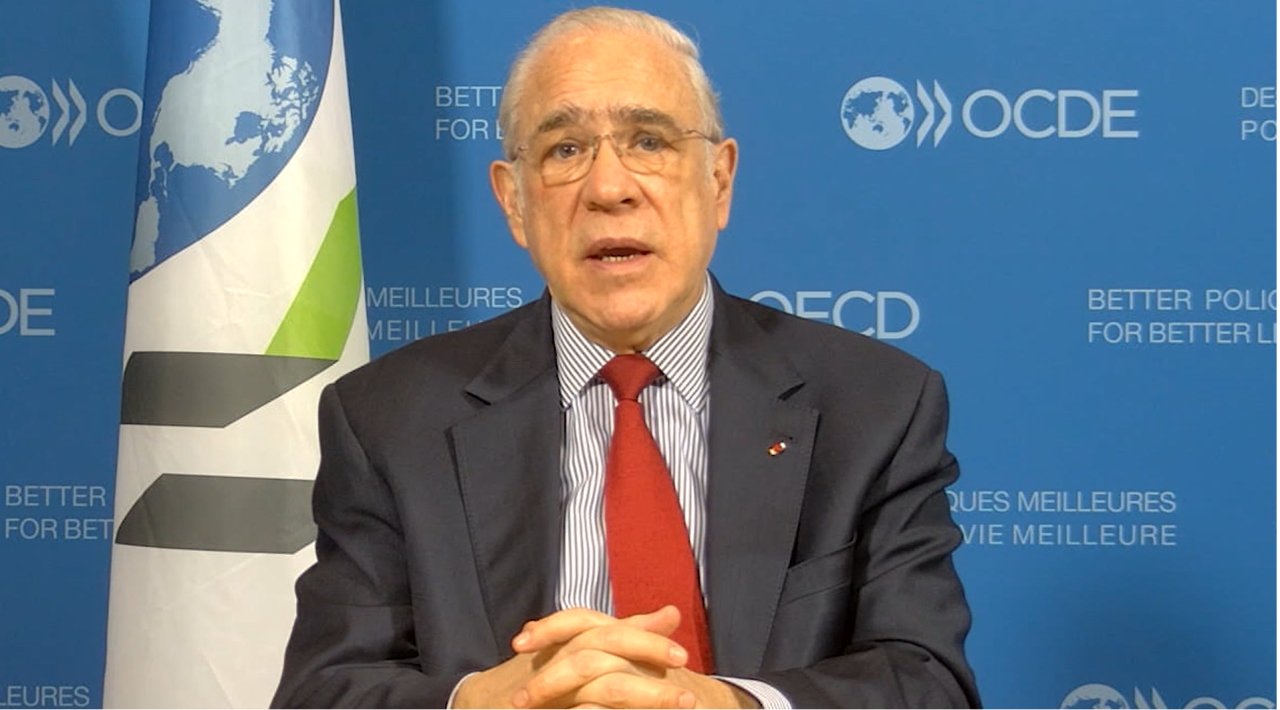Selective relief handouts more effective than universal program: OECD chief
By Park Han-naPublished : Feb. 17, 2021 - 17:36

The head of the Organization of Economic Co-operation and Development said Wednesday that targeted support programs for low-income earners and small businesses will be more effective tool for South Korea to counter the economic fallouts from the coronavirus pandemic than a universal provision of relief funds.
“Targeted support measures on those who need it most will have greater multiplier effects, imparting a greater boost to private consumption compared to across-the-board support to all families,” Angel Gurria, secretary-general of the OECD, said in a joint written interview with Korean news outlets.
His remark came just days after the ruling party and the government agreed to grant the country’s fourth round of COVID-19 relief payments to select groups whose economic activities are affected by the virus following fierce debates over the necessity of financial assistance for all households.
Last year, the country offered three rounds of pandemic relief funds worth 31.4 trillion won, including stimulus checks, worth a total of 14.3 trillion won, for all households doled out in May.
“It is important to ensure that public money is spent efficiently, all the more so as Korea is the world’s fastest aging country, which implies considerable upward pressure on public spending going forward,” said Gurria.
He called for more inclusive measures for non-regular and old workers as well as women in a bid to reduce inequality and bipolarization in the labor market that are expected to exacerbate in the process of post-pandemic recovery.
“The Korean government should continue efforts to tackle the segmentation of labor markets and income disparities by strengthening the inclusiveness of the social protection system,” he said while citing data on the country’s gender wage gap. The gap stood at 32.5 percent in 2019, which was among the highest in the OECD.
In South Korea where aging population and digital technologies are reshaping the labor market, lifelong learning opportunities for low-skilled workers should be increased, Gurria said.
Such move will help reducing polarization of skills, which results in a high productivity gap between large firms and SMEs, which have a higher share of low-skilled workers.
Pointing out the country’s low level of tax revenue in relation to GDP when compared to those of other OECD member countries, Gurria suggested that the country could carry out tax reforms designed to “increase labor market participation, in particular for women” and that “strengthen the role of environmentally-related taxes.”
Gurria is currently serving his third five-year mandate as the secretary-general of the intergovernmental economic organization since 2006.
By Park Han-na (hnpark@heraldcorp.com)








![[Kim Seong-kon] Democracy and the future of South Korea](http://res.heraldm.com/phpwas/restmb_idxmake.php?idx=644&simg=/content/image/2024/04/16/20240416050802_0.jpg&u=)








![[KH Explains] Hyundai's full hybrid edge to pay off amid slow transition to pure EVs](http://res.heraldm.com/phpwas/restmb_idxmake.php?idx=652&simg=/content/image/2024/04/18/20240418050645_0.jpg&u=20240418181020)

![[Today’s K-pop] Zico drops snippet of collaboration with Jennie](http://res.heraldm.com/phpwas/restmb_idxmake.php?idx=642&simg=/content/image/2024/04/18/20240418050702_0.jpg&u=)